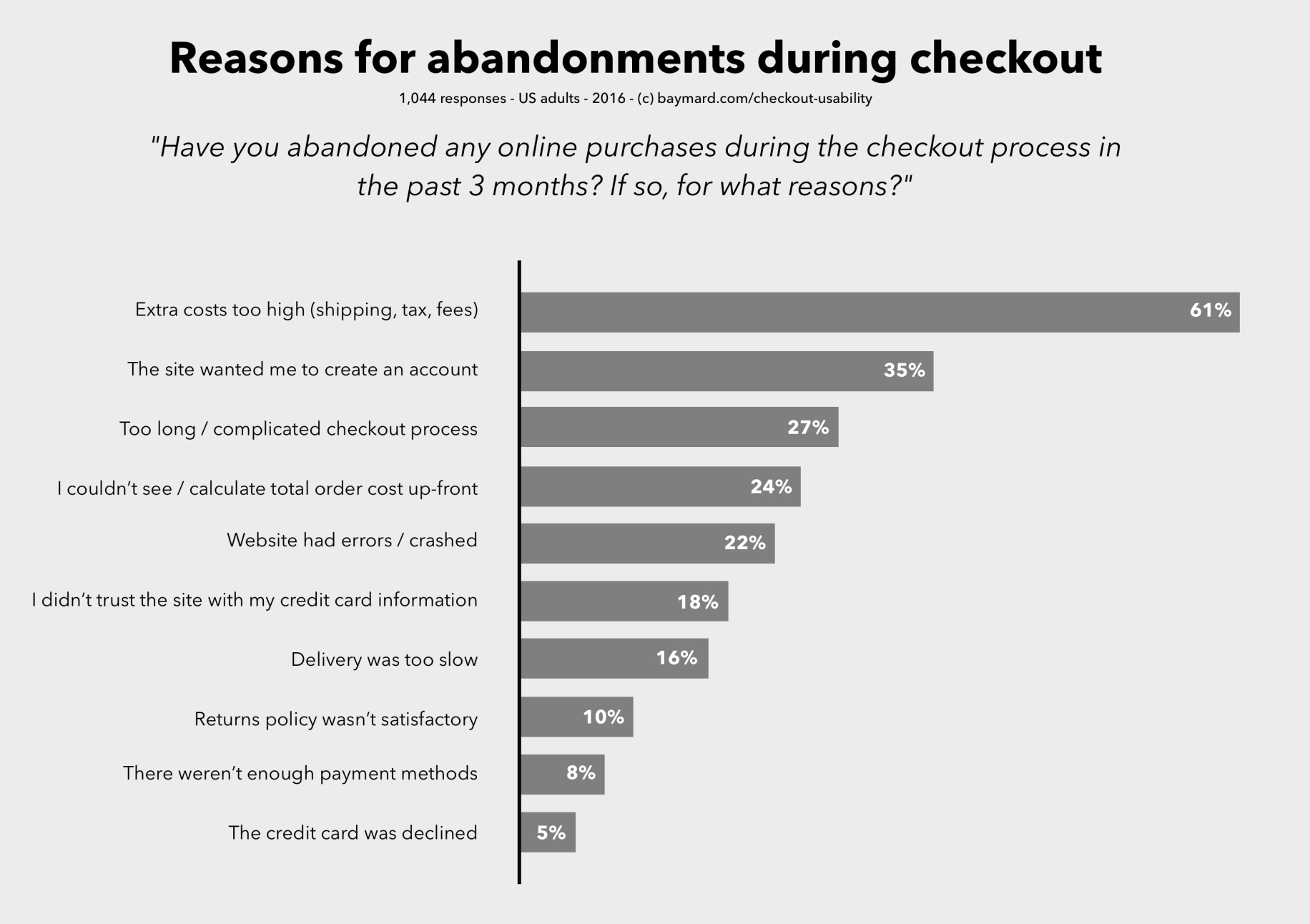A badly designed experience can not only be frustrating to the user, but can also highly impact a business, especially when we talk about online businesses. To give you an idea and statistical evidence to demonstrate this statement to your clients or boss, a report by the Baymard Insititute shows that a better design and checkout flow experience could have improved about 35% of ecommerce conversion, in other words, by fixing small UX issues, companies could saved billions of dollars.
It is interesting to closely analyze the study by Baymard (2016) and note that most of the reasons for the abandonment of a business are related somehow to the whole user/client experience:

The study The App Attention Span (2014)—by AppDynamics in partnership with the Institute of Management Studies (IMS) at Goldsmiths, University of London—demonstrates that 90% of users confirmed that they stopped using an app because of poor performance, and 86% of them deleted or uninstalled an app because they found problems with its functionality or design. According to the Customer Experience Report (2010) by RightNow, 82% of customers have left a company because of a bad customer experience.
Other studies show the negative impact of a bad experience: About 40% of users might abandon a website if it takes more than three seconds to load, while 79% will search for another website in order to be able to complete their task.
Going beyond these figures, a bad user experience can impact not only on the customer's relationship with the companies, but also on the employee's performance. In 2013, the Avon Products company reported that it had discontinued a $125 million mobile software development project after running a pilot in Canada, which showed that the iPad version was too hard to use, resulting in many sales reps quitting the company.


























































